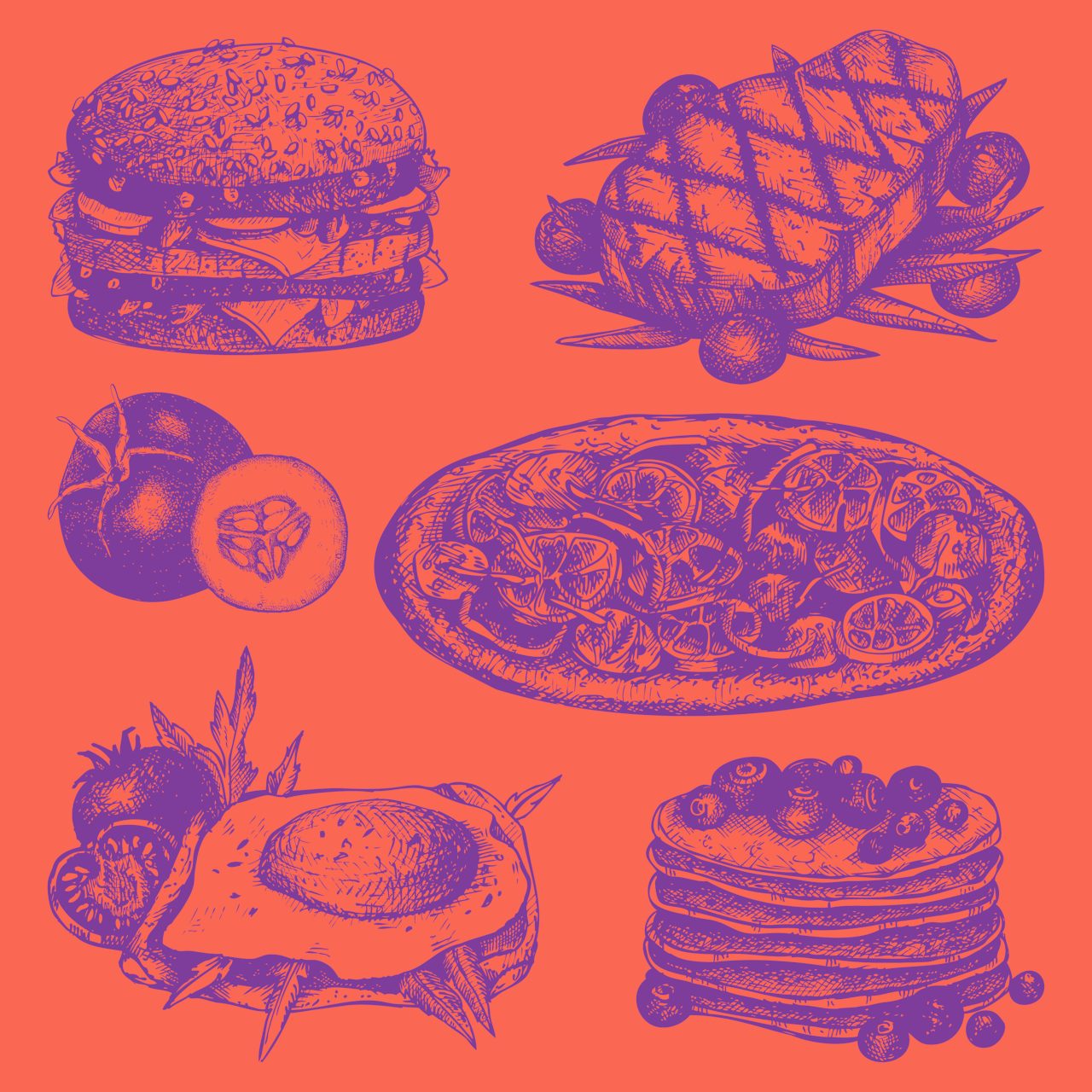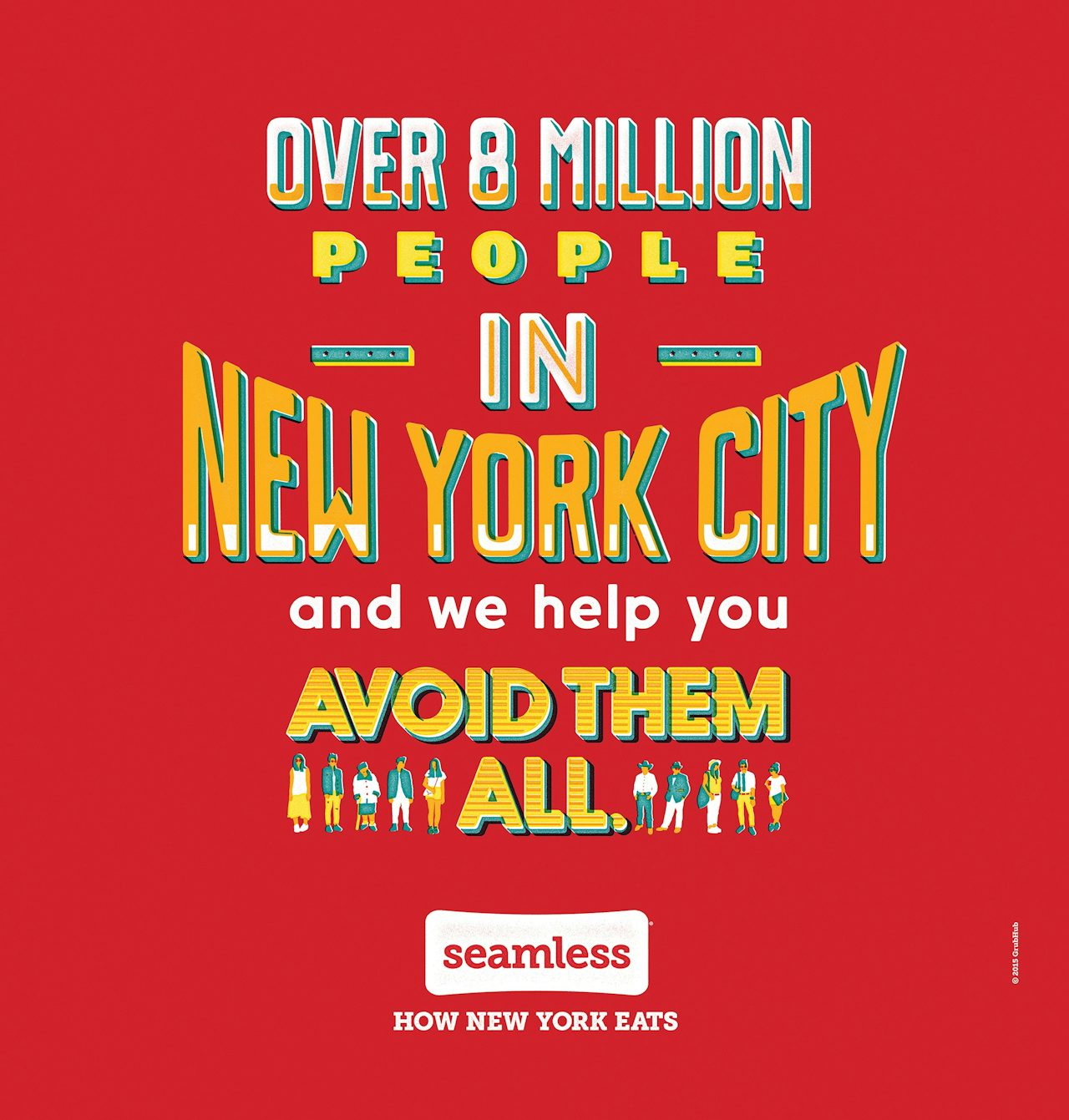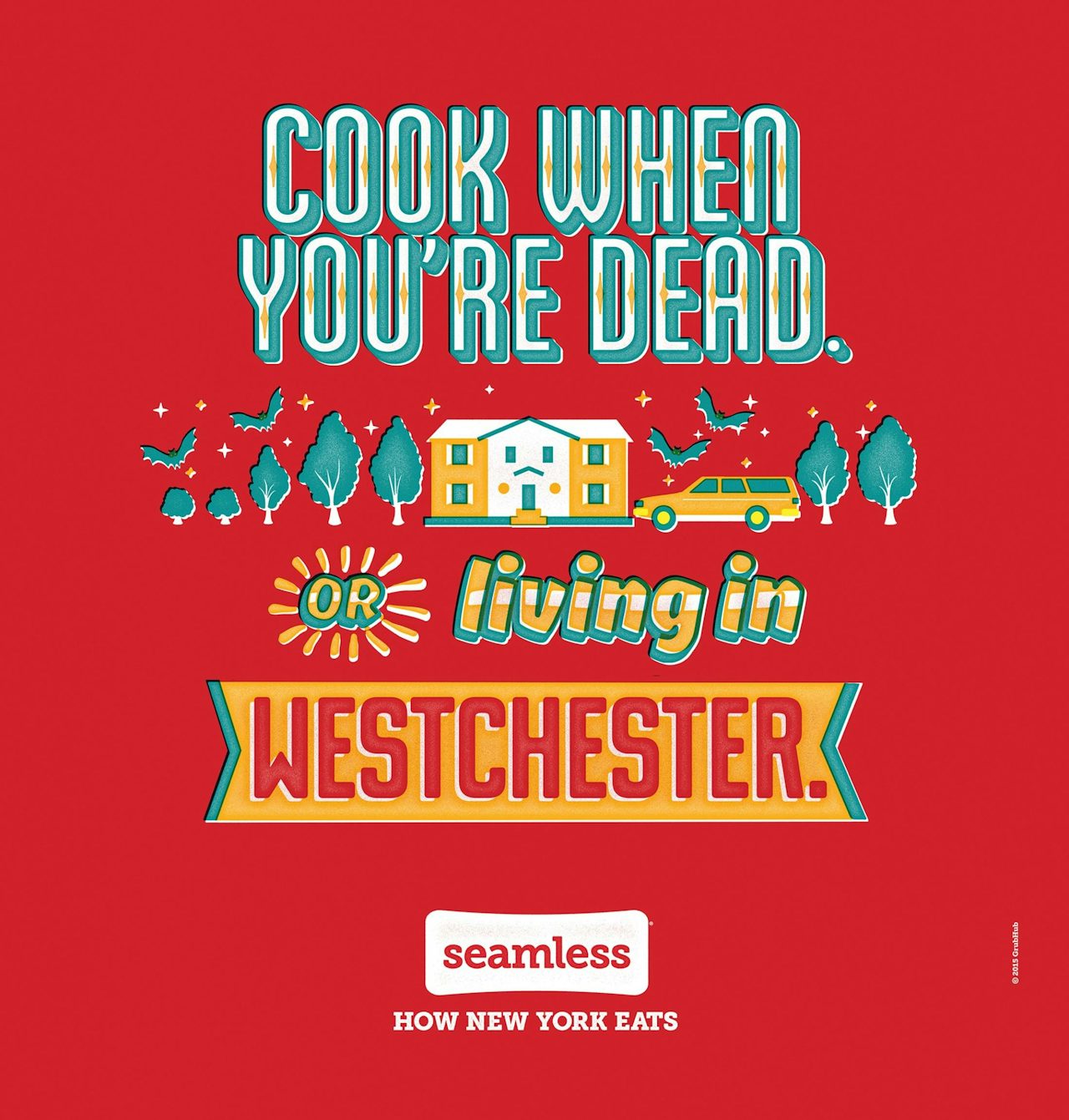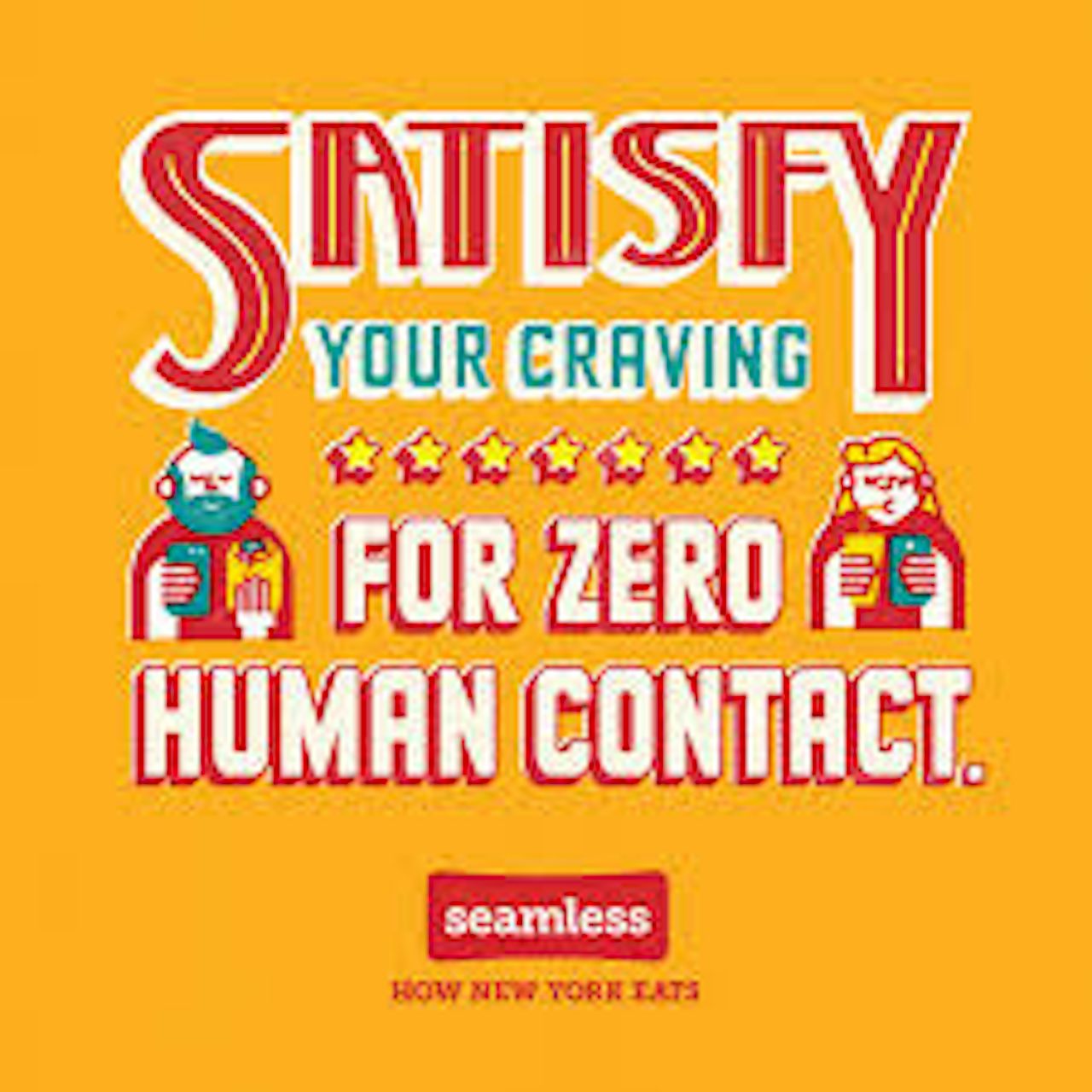If you live in New York or spend a lot of time on Twitter — which, for better or worse, means being forced to know about things that happen in New York — you are probably familiar with the reliably terrible subway advertising practices of food delivery app Seamless.
For years now, the ads have depicted Seamless customers as lazy, incompetent misanthropes who hate to cook almost as much as they hate human contact. Feast your eyes on the below:
The Seamless ads are bad. If you did not already know this, it is something you now know. But as shitty as Seamless’s ads have always been, their newest initiative, an offshoot of its “How New York Eats” campaign titled “Special Instructions,” truly reaches a fetid, steaming pinnacle. They encourage us to go against everything we have been taught about human decorum, urging us to find the unchecked sociopathy of people like Charlie, who lives in Astoria and more than probably works at a start-up in DUMBO, funny and/or charming.
They are almost universally loathed among my friends, and seem to exist solely for the purpose of pissing people off. Seamless must be aware of this, and yet they seem intent on launching an all-out assault on our souls, one Special Instruction at a time. Why would a savvy, brand-conscious company pursue a marketing strategy telling its customers to act like total shitsticks? The answer, to me, is that this is less a traditional advertising strategy and instead a targeted attempt at behavior modification. If you’re a company and would like more customers, there are two proven strategies for getting those customers: you can convince people how your product or service fits into their lives as they live them, or you can convince them to change their lives in a way that financially benefits you. Before deodorant was a thing, for example, smelling bad wasn’t considered a social faux pas. You smelled how you smelled, and that was that. But then, advertisers made having sweaty, smelly armpits seem like a worse crime than grave robbery, and now we all rub sticks full of chemicals on ourselves to combat a problem that was invented to sell said sticks full of chemicals in the first place.
Instead of stoking our olfactory anxieties, Seamless wants to unleash our inner divas, slowly moving the Overton Window of dickishness until we are all the ideal Seamless customer: an unrepentant monster who has never recovered from the psychological trauma of the mirror stage and cannot stand to look another human in the face. The ideal Seamless customer is a petty narcissist who values his own comfort over any responsibility to others. He manspreads; he ghosts you after three months; he narcs on the homeless and then brags about it in a Snapchat Story. He goes by Charlie in Astoria, but spiritually, his name is Chad and he lives in a wormhole where Murray Hill and the Financial District converge with this hotel in Belgium that a conceptual artist created to look like a big anus.
“But we all realize that guy is a jerk, so clearly this isn’t the case,” I imagine you, a fool, saying to yourself, thinking about how you know Charlie in Astoria is actually Chad in Anus. But hear me out. Sure, we can all agree that asking an underpaid delivery person to yell at your neighbor is tantamount to buying a one-way ticket to hell, but how much better does simply asking them to bike through Brooklyn in the rain, braving increased risk of injury for low pay and long hours, sound in comparison? And honestly, if Alexa in the Lower East Side can ask for a smoothie with a side of ketchup surely I deserve to have my condiment needs met too, right? In our darkest hearts, we all relish the notion of being like Van Halen having the audacity to ask somebody to pick out the brown M&Ms for us. What Seamless tells us is that we deserve it. Seamless wants you to believe you’re Van Halen.
We are creeping steadily towards a future in which we use our Universal Basic Income to order a meal that gets 3D printed in a driverless food truck, which our terrifying robot dog fetches and then pre-masticates for us while we lounge in a serotonin pod, watching one of those weird computer-generated YouTube videos of Deadpool sucking his own dick. By encouraging us to treat our fellow humans as servile automatons, Seamless is conditioning us to be totally chill about an impending future in which we all get cut out of one economic process or another, in a manner that’s totally, uh, seamless.
The ideal app experience is often described as “frictionless” and, for most apps that are part of the gig economy, “friction” is often just “regard for the fact that others had to perform labor to make a thing happen.” Most people would never consider asking a service industry worker to their face if they mind making “a second smaller meal for my hamster” because that would be rude and insane. But when you type it into a box, social obligations tend to disappear. If you really thought too hard about the people on the other end of your order — restaurants struggling to survive under the capricious rule of Seamless itself, delivery people who may not even be pocketing the tip you’re encouraged to leave in app — you might just end up walking to the bodega instead.
Seamless is terrified you might, for a moment, remember the simple fact that we live with each other in the world. Instead, they are subtly encouraging you to be your worst self, which is why all their ads come down to the same message: “Seamless: Go ahead, be a dick about it.”






